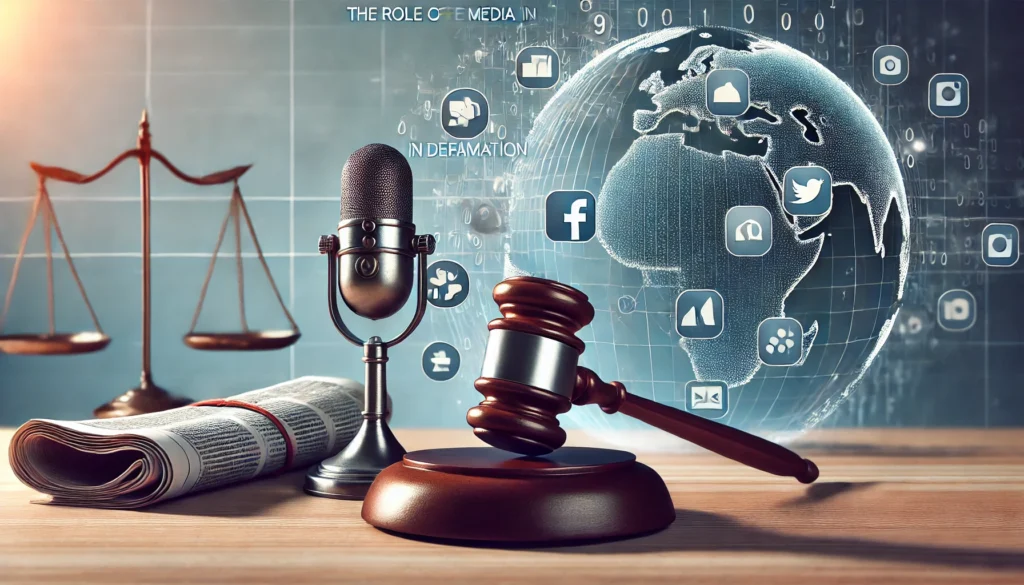Published On: 17th July, 2024

Authored By: Yuvraj Pandey
University of Allahabad
Introduction
International law plays a key role in tackling the complexities and challenges possessed by terrorism and international crimes in the modern era. As the world is globalizing, so are the networks and ways of criminal organizations and terrorist groups. International law functions as a basement for coordination amongst states along with providing mechanisms to prevent, penalize, and punish the threats to the world’s security.
Definition of Terrorism
There is no universal or single definition for terrorism but in accordance with the UN Security Council’s definition, it is an act of crime committed against the public at large with the intent to cause death or serious threat or injury. The purpose is to create a state of terror in the minds of people and in the general public as well as to force the government to do or abstain from doing certain acts.[1] As per the EU, terrorist activities are crimes of a severe nature that harm a country or an international organization. These actions try to undermine and damage the political, economic, or social structures of a country[2]. In India, terrorism is defined in the 8th Terrorism Report published in 2008 according to which terrorism includes any intentional act of violence that causes death or damage to property and creates fear in any group of people.[3]
Reasons of Terrorism
There are several factors that lead to terrorism. Some of them are:
- Ideological causes: The main reason for this kind of terrorism to grow is ideology, belief, faith, and practices which lead to terrorism acts such as Al-Qaida or ISIS (Islamic State Iraq and Syria) which aims to make the world a Muslim heaven through the use of weapon and policies of mass conversion along with love jihad.
- Psychological Reasons: The main reason behind this terrorism is the mental state and ability of the person who either for the purpose of revenge, or mental peace through killing humans, etc. joins the terrorist organizations. Example: The 9/11 attack on the Trade Centre of the Us was done with the intent of revenge on Al Qaeda.
- Strategic Reasons: The main reason behind this terrorism is to fulfill some motive or goal. Example: The Kandhar Hijack of 1999 was aimed at the release of Islamist terrorist Ahmed Omar Shaheed Sheikh who was held in Indian prison along with fellow member Mohammad Azhar (a Kashmiri militant).
International Terrorism and Crimes
International terrorism is an action done with the intent to cause death or do physical damage to people or property which creates a state of terror among the people and the ruling government. It is the use of hard criminal violence anywhere in the world to threaten the public and force its government to change its policies, decisions, and actions on a particular topic, point, or issue. The Terrorist attack on the Trade Center in the USA also known as the 9/11 terror attacks shook the world when the Al Qaeda-based terrorists hijacked three of the US airplanes and crashed two of them at the Trade Centre in which approx. 3000 people lost their lives. Terrorism and transnational crimes such as drug trafficking, human trafficking, cybercrime, and arms trafficking pose a serious threat to international peace and security along with the national interest of the Nation States. These activities cross countries and their national borders, making it difficult to combat them with unilateral means alone. Example: The Narcos drug trafficking of Pablo Escobar from Colombia to Mexico and then USA is a classic example of cross-border drug trafficking. Terrorist organizations operate in wider areas using modern highly classified techniques to evade detection and enforcement. The active participation of many international organizations contributes considerably to the war against transnational organized crime. International Organization plays a positive role in this aspect as they help foster international cooperation, build legal frameworks, and provide resources and expertise in the fight against these global crimes. The United Nations (UN) along with its various authorities and nodal agencies acts at the forefront of these efforts. The UN Office on Drugs and Crime (UNODC) fights against illegal narcotics, crime, and terrorism. It is the Parental Organization of the United Nations Convention against Transnational Organized Crime (UNTOC) and its protocols promote their widespread adoption and implementation. It also provides technical assistance, conducts research, and publishes reports to help member countries effectively.[4]
The Role of International Law
International law provides a base for cooperation among states to combat terrorism and transnational crimes through various legal instruments, conventions, and treaties. These legal frameworks facilitate information sharing, extradition, mutual legal assistance, and joint operations among nations. They also establish norms and standards for the prevention and prosecution of these offenses, promoting accountability and justice on a global scale.
Prevention: International law promotes prevention through border security, financial regulations, and counter-radicalization strategies. Multilateral initiatives aim at strengthening international cooperation, peace, and order along with capacity building to prevent and combat these threats and they are done by the United Nations Office on Drugs and Crime (UNODC) and the Financial Action Task Force (FATF).
Prosecutor: International law provides mechanisms for extradition, mutual legal assistance, and harmonization of legal frameworks to facilitate the prosecution of criminals. The United Nations Convention against Transnational Organized Crime (UNTOC) and its protocols are some of the treaties that strengthen international cooperation in the investigation and prosecution of transnational crimes.
Punishment: International law ensures that criminals are prosecuted through extradition, prosecution in national or international courts, and sanctions imposed by the international community. The international courts, such as the International Criminal Court (ICC), basically perform the function of prosecution of the most serious crimes of international concern, such as genocide, war crimes, and crimes against humanity.
Steps Taken Internationally
The UN General Assembly plays a key role in the promotion of international unity and ensuring that all states should work together to combat terrorism and crimes. All UN member states accepted the ‘United Nations Global Counter-Terrorism Strategy’ to combat terrorism on domestic as well as global scale, both singlehandedly or in unity. The four core principles of counter-terrorism are (a) Address the condition that promotes terrorism, (b) Prevent and combat terrorism, (c) Increase the capacity to prevent and combat terrorism along with the enhanced role of the UN for the same and finally (d) Upholding human rights and building the rule of law. Most importantly, the UN Security Council has formed three committees, namely: The al-Qaida and Taliban Sanctions Committee, the Counter-Terrorism Committee (the “CTC”), and the 1540 Committee, to enforce the relevant resolutions related to their actions, movements, and development in the world for sanctioning them in the required period along with sufficient time to take countermeasures and attacks on them. [5]
Conclusion
International law plays a crucial role in countering terrorism globally as well as within national lines. It also helps in dealing with cross-border crimes. International law sets the guidelines, principles, laws, orders, and policies that every government of the nation must stick to and adhere its importance in order to counter terrorism and crime in a well-organized manner. The laws deal with the punishment, prosecution, extradite, and penalize the terrorists along with putting hard sanctions on the terrorist organizations as per the rules of the International Court of Justice and the UN respectively. International law as a whole plays the role of governing law in the world bringing together all the nation-states on various topics.
Reference(s):
[1] https://www.unodc.org/e4j/en/terrorism/module-4/key-issues/defining-terrorism.html#:~:text=criminal%20acts%2C%20including%20against%20civilians,a%20government%20or%20an%20international (UNODC Defining terrorism)
[2] https://www.europarl.europa.eu/topics/en/article/20180316STO99922/how-to-stop-terrorism-eu-measures-explained#:~:text=The%20EU’s%20common%20legal%20definition,from%20performing%20any%20act%2C%20or (How to stop terrorism: EU measures explained)
[3] https://www.ncib.in/anti-terrorism-unit.php Terrorism Information (An Initiative of National Crime Investigation Bureau)
[4] https://www.cambridge.org/core/journals/asian-journal-of-international-law/article/value-of-international-law-in-combating-transnational-organized-crime-in-the-asiapacific/D8196437EC015249A10FB5C314ECD973 (The Value of International Law in Combating Transnational Organized Crime in the Asia-Pacific)
[5] https://www.unodc.org/ (The United Nations Office on Drugs and Crime (UNODC))




